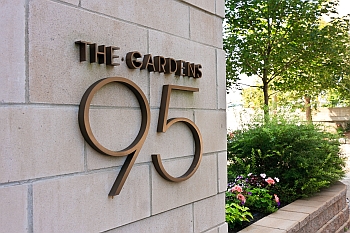Notes
1. Acts 2:46; 5:42; 20:20; Acts 18:2-4 + Romans 16:3 and 1 Corinthians 16:19; Romans 16:5,10,11; 1 Corinthians 1:11,16; Colossians 4:15; 2 Timothy 4:19; Philemon 2; 2 John 10; etc.; #75
2. #23; Deuteronomy 10:18-19; 14:29; 16:11,14; 1 Kings 8:41-43; Job 31:32; Psalm 68:6,12; 113:7-9 + Revelation 1:6; 5:10; Matthew 25:35; Romans 12:13; 1 Timothy 3:2; Titus 1:8; 1 Peter 4:9; 3 John 5.
References
Family
• Gary North, "Family Authority vs. Protestant Sacerdotalism," in the Journal of Christian Reconstruction symposium on the Family, Vol. IV, No. 2, Winter 1977-78, reprinted in Vol. XVI, "The 25th Anniversary Issue" available at The Chalcedon Store.
• The Family: Foundation of Society
• The Family / The Fifth Archetype
Liturgy
Jesus destroyed the temple in A.D. 70. It must not be rebuilt.
Hospitality
James B. Jordan: "God's Hospitality and Holistic Evangelism," in Sociology of the Church, pp. 221-257.
The Royal Virtue
R.J. Rushdoony, "The Royal Virtue," Law and Society, (Vol II of Institutes of Biblical Law), ch. 49, pp. 246-248, plus chapters 50-54. Also, "Communion and Community," ch. 23, pp. 132-137.
Note: Patriarchy is the paradigm; not the priesthood.
Hospitality is the blueprint, not "liturgy."
The Bible describes Godly patriarchs as "priests" and "kings"
(Revelation 1:6; Revelation 5:10). But this could be described as a negating analogy. Patriarchs are the true priests and kings, but "real" priests and kings are Biblically sub-standard.
• Any person who claims to be a "real" priest, offering "real" blood sacrifices, denies the blood atonement of Christ, the True High Priest.
• Anyone who claims to be a "real" hereditary monarch denies the Kingship of Christ.
Patriarchs are those who affirm the true priesthood of Christ and the true kingship of Christ; they are thereby "priests and kings," reigning with Christ on earth, not those who claim to be "real" priests and kings.
The way we reign as priests and kings is through hospitality. This is the blueprint of dominion. We are to offer sacrifices (Romans 12:1; 1 Peter 2:5; Hebrews 13:16; Hebrews 13:15; Philippians 4:18). But those who offer "real" sacrifices and engage in "real" liturgies are missing the point (Hebrews 10:5-7; Mark 12:32-34; Matthew 12:5-8;; Matthew 9:13).
As we will see, Christians in the last days of the Old Covenant were required to continue observing Old Testament liturgies, such as Passover (Luke 22:7-20), but that continued only until Christ came in judgment against Jerusalem and destroyed the temple (1 Corinthians 11:26; Matthew 16:27-28).
The house-church is not a wanna-be "church"; a "we're going to be a real church someday, with a big steeple on top." The house-church is where dominion is exercised, and hospitality practiced. This is the liturgy of the Church.
Hospitality is also the Christian paradigm for business, though this is beyond the scope of this Thesis, which centers on the Church. See Jennifer Roback Morse, Love and Economics: Why the Laissez-Faire Family Doesn't Work

No comments:
Post a Comment